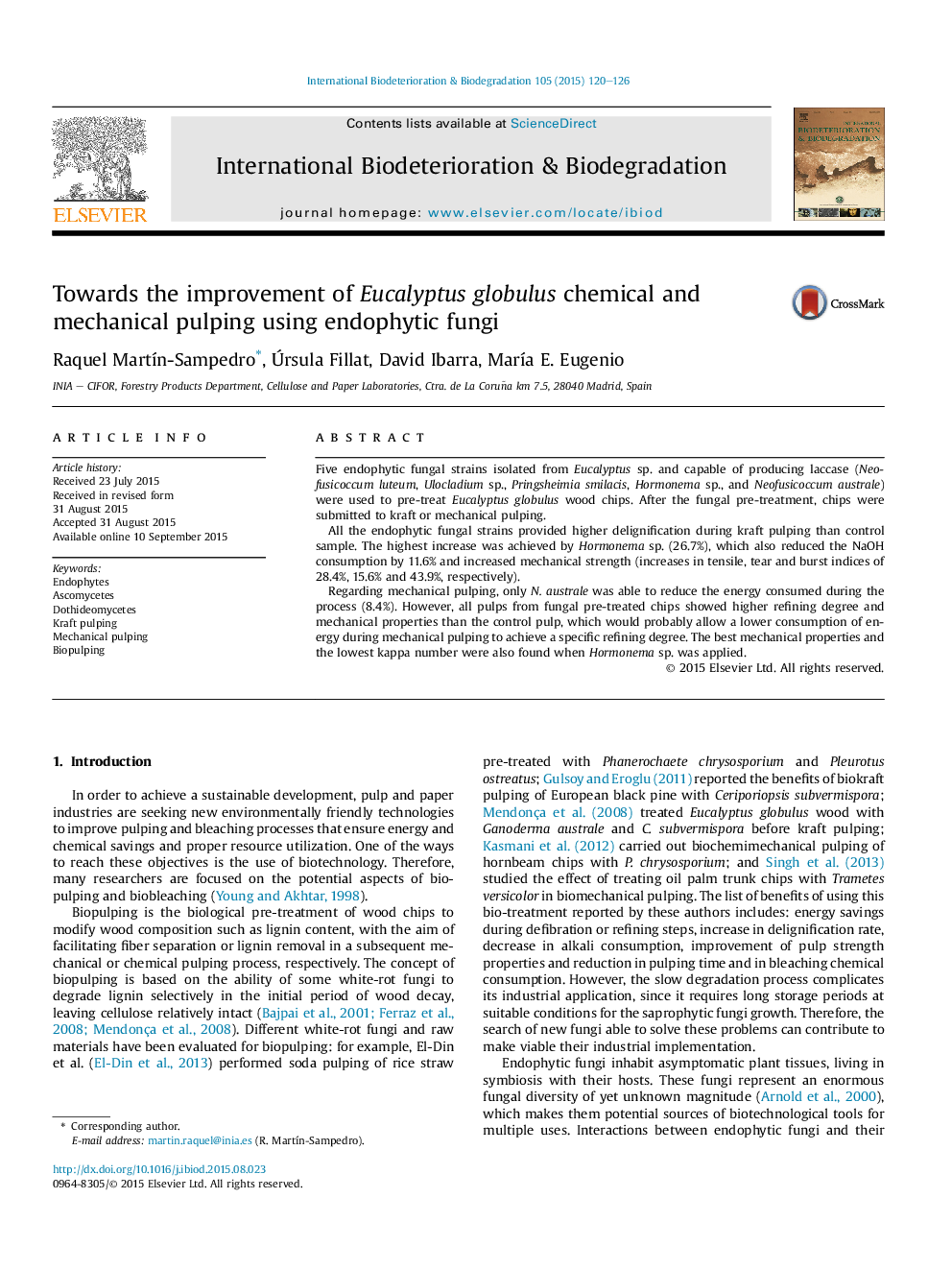| Article ID | Journal | Published Year | Pages | File Type |
|---|---|---|---|---|
| 4364319 | International Biodeterioration & Biodegradation | 2015 | 7 Pages |
•Endophytic fungi were applied for the first time in eucalyptus biopulping.•The five strain tested enhancement delignification during kraft pulping.•Pretreated mechanical pulps shown higher refining degree and mechanical properties.•Hormonema sp. provided the highest benefits in both kraft and mechanical pulping.
Five endophytic fungal strains isolated from Eucalyptus sp. and capable of producing laccase (Neofusicoccum luteum, Ulocladium sp., Pringsheimia smilacis, Hormonema sp., and Neofusicoccum australe) were used to pre-treat Eucalyptus globulus wood chips. After the fungal pre-treatment, chips were submitted to kraft or mechanical pulping.All the endophytic fungal strains provided higher delignification during kraft pulping than control sample. The highest increase was achieved by Hormonema sp. (26.7%), which also reduced the NaOH consumption by 11.6% and increased mechanical strength (increases in tensile, tear and burst indices of 28.4%, 15.6% and 43.9%, respectively).Regarding mechanical pulping, only N. australe was able to reduce the energy consumed during the process (8.4%). However, all pulps from fungal pre-treated chips showed higher refining degree and mechanical properties than the control pulp, which would probably allow a lower consumption of energy during mechanical pulping to achieve a specific refining degree. The best mechanical properties and the lowest kappa number were also found when Hormonema sp. was applied.
Graphical abstractFigure optionsDownload full-size imageDownload as PowerPoint slide
